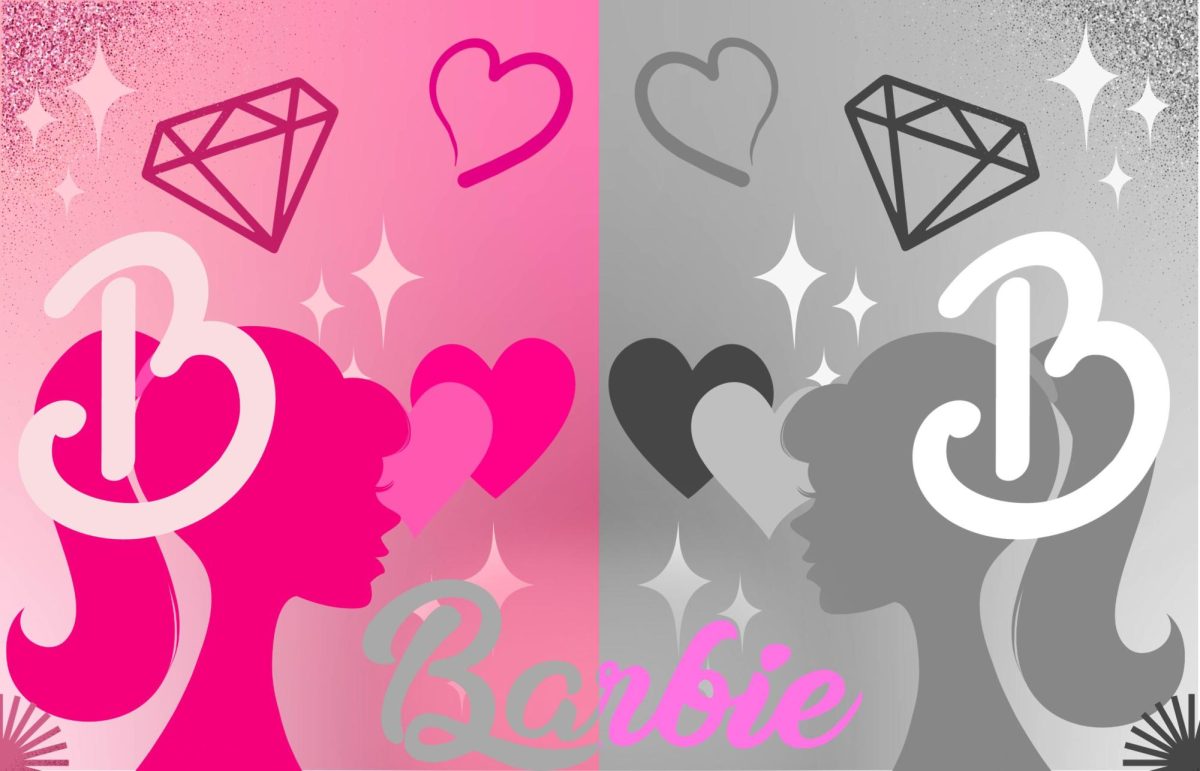Full of dazzling pink sets, iconic outfits and themes of feminist empowerment, “Barbie” drew in a worldwide audience. Only a month after its release, the movie made over $1.3 billion, making it the highest grossing movie directed by a woman and 14th highest grossing movie in history, according to The Direct.
Pro- “Barbie”:
From catcalling to a lack of representation in the workplace, to passionate rants about the unachievable standards placed upon women, “Barbie” delicately, yet concisely portrays the experiences of what it means to be a woman.
The creators used the immense popularity of the brand to garner an international audience. The movie takes Barbie, a fond childhood friend for so many young children, and creates a powerful message about feminism. The movie used humor, sarcasm and wit to make the film appealing and palatable to people of all ages and backgrounds.
However, it doesn’t sacrifice serious discussions. Seeing all of these incredible women holding positions of power (including President Barbie!), felt amazing, until an unpleasant thought surfaced: it just felt unrealistic. We started thinking about why that was, and realized that living in a society where positions of power are held by men conditioned us to believe that this is just how it is. The “Barbie” movie encouraged critical thinking through the cognitive dissonance in Barbieland.
Anti-“Barbie”:
“Barbie” doesn’t do anything to combat unrealistic beauty standards, which was disappointing when Barbies contribute to this issue. One study published by The Journal on Body Image, found ultra-thin dolls cause young children to view slimmer bodies as more ideal. Ariana Greenblatt’s character, Sasha, declares to Barbie, “you’ve been making women feel bad about themselves since you were invented.” Unfortunately, it’s no surprise that this is the only mention of body image. According to Bloomberg, Mattel, the parent company of “Barbie,” joined Gerwig and the producers to discuss the impact that the movie would have on the brand.
For a movie that emphasizes uplifting women, it exacerbated unachievable body standards. The movie also creates a negative body image to Barbie herself. When Margot Robbie’s Barbie begins to notice cellulite – a harmless condition that creates dimples in the skin – she panics. Additionally, the exclusion of Weird Barbie from Barbieland was a double standard. Barbieland was supposed to be a utopia for women to explore their passions and become confident, but Weird Barbie’s isolation shows that the only women who fit into society are welcome.
A massive problem with a single movie having so many themes and appealing to such a wide audience is that the movie often sacrifices depth. While “Barbie” did cover Feminism 101, it wasn’t revolutionary. In fact, the monologue about the challenges women face, that was given by Gloria, played by America Ferrera, seemed awkward, stilted and unoriginal.
The movie also seemed to address the patriarchy as if it were a joke. Ryan Gosling’s Ken saw the patriarchy primarily as beer and horses. The sentiment turns the concept of the patriarchy into something comedic and foolish. Opposite of how the patriarchy in our society today should be viewed: a destructive social construct.
In conclusion:
While “Barbie” creates a discussion about feminism in an easy-to-understand, accessible way, nothing new was added to the conversation. The messages were a complete regurgitation of the same things that feminists have been motivating towards forever: equal opportunity, self expression, and sisterhood. Looking to the future, feminist filmmakers need to create movies that lead to further progress in the movement.


Dayana Lovera • Mar 22, 2024 at 8:38 am
i agree to some extent that the movie did not add anything new. At most, it highlighted points that women experience in society that are not talked about more often than they should be. like, how the expectations contradict themselves. (personally, i had not thought about that and how true it was and began looking for them in my everyday life.)
but i still like the movie because it is still a conversation that needs to continue to happen and shouldn’t die. i also think that reiterating these points in a spoon-fed manner is not a bad thing.
i think the point is to have more “real” conversations with less complexity that aims to confuse the opposing side in order to stump them and win the argument, and honestly yeah, sometimes that means dumbing it down for others. why? because we want them to actually understand our pov. even if it means explaining it like you would a 10 year old.
its also how we could understand each other from different political sides, cultural backgrounds, physical/intellectual capabilities, and other worlds with more than one side.
this is Greta’s and other writer’s pov they wanted to contribute to the convo. and i truly do think there are people out there who learned something from it.
their perspectives matter.
her contribution may not have been too different from what others have said before, but everyone wants to tell their piece and every perspective is different in some way. and we should allow them.
and i think it will encourage others to tell theirs, and we will learn new things from them, even it much of it overlaps with what others have already said.
and i cant wait to hear their stories too and see what other branches it creates in the conversation of equality of the sexes.
heres to more conversations that can bridge the gap and make us better and more loving humans!
🙂
Tobias • Mar 18, 2024 at 1:40 pm
Love this article!